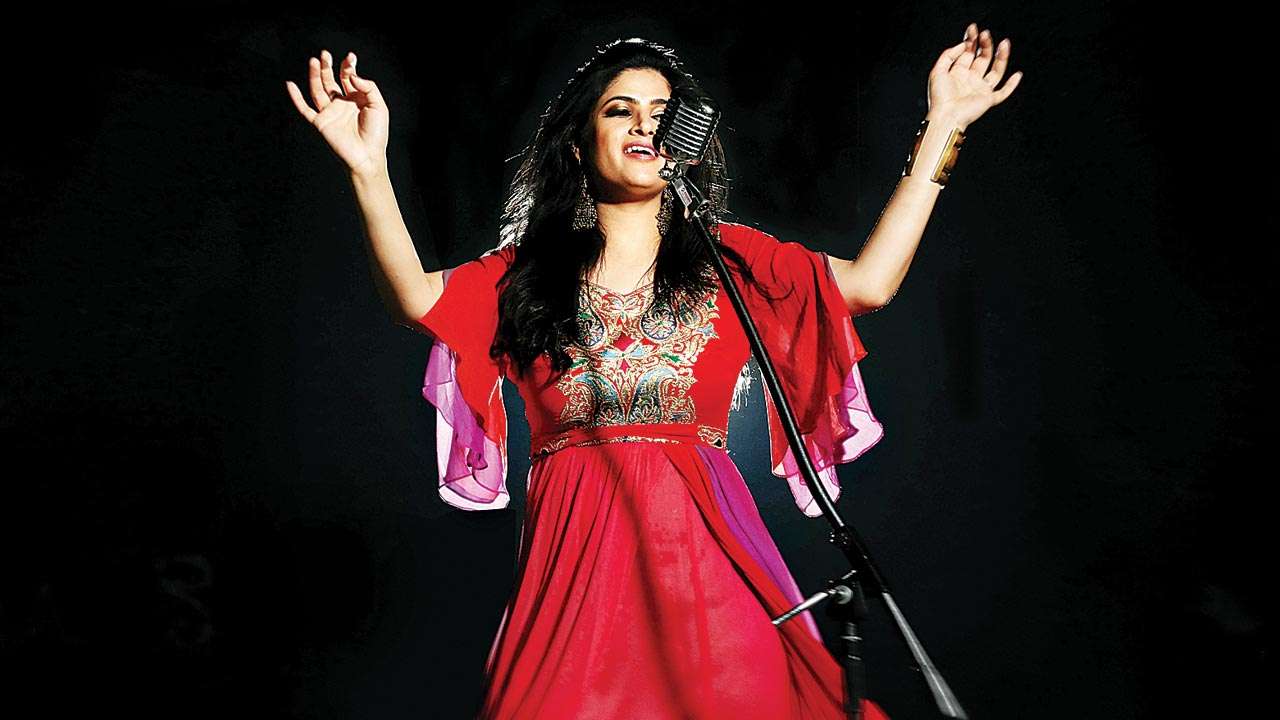
Aabha Hanjura’s second single from the upcoming album, Abha Hanjura & The Sound of Kashmir released recently, but her ringtone is still Hukus Bukus, her first track from the album. “It’s a happy song and apt for a ringer,” she says. The singer-songwriter-composer is out with Khanmoej Koor. Written by Lt Nazir Das, a poet from Kashmir, it’s a melancholic piece sung at most Kashmiri weddings. While the lyrics are traditional, Aabha has made the composition her own. “Only a part of the melody is traditional, the rest is new. I’ve added new layers of composition to the existing ones,” she reveals. The response to the track has been overwhelming. “I’ve received so many teary-eyed and deep messages. I shouldn’t say this but I feel happy when people say the song made them cry!” she smiles, “It means they connected with it.” Over to Aabha...
Honestly, I was a little nervous about it because people expect a certain kind of sound from me. When my dad heard it, he said, ‘People know you for making them get up and dance and now they will know you for making them sit and cry!’ I feel, as an artiste, one has different dimensions and one should explore them. I want to be able to express myself in all kind of ways. I wanted to showcase another side of me, which I will keep doing with my other songs.
I heard the song at my maasi’s wedding when I was 14 years old. It’s a song that’s sung at Kashmiri weddings at the mehendi raat. I wasn’t even old enough to understand it and it still moved me so much. So, when I was deciding on the songs for my album, I picked this up and started re-composing it, somewhere in 2015. It’s such a personal track. I wanted to make it my own and give it a new dimension in terms of the composition as well. Weddings are happy occasions, but there are bittersweet moments too, especially for the bride’s family. I wanted to express all of that.
Absolutely! When the Dilbaro track came out, I thought it was a blessing in disguise. The traditional song is about brother-sister, whereas for the film, they made it about father-daughter. It’s a song that Kashmiris know but the familiarity that a Bollywood number brings is something else. However, more importantly, I feel the English subtitles of the song capture its essence, and a lot of people were moved by it. They’ve been written by my brother Abhay Hanjura, who’s an entrepreneur but a closet writer, too. I had to coax him to do this for me. He just shut off when he heard the song, he was so moved by it. When he sent me the first draft, I immediately approved it. I was like, this is more than perfect!